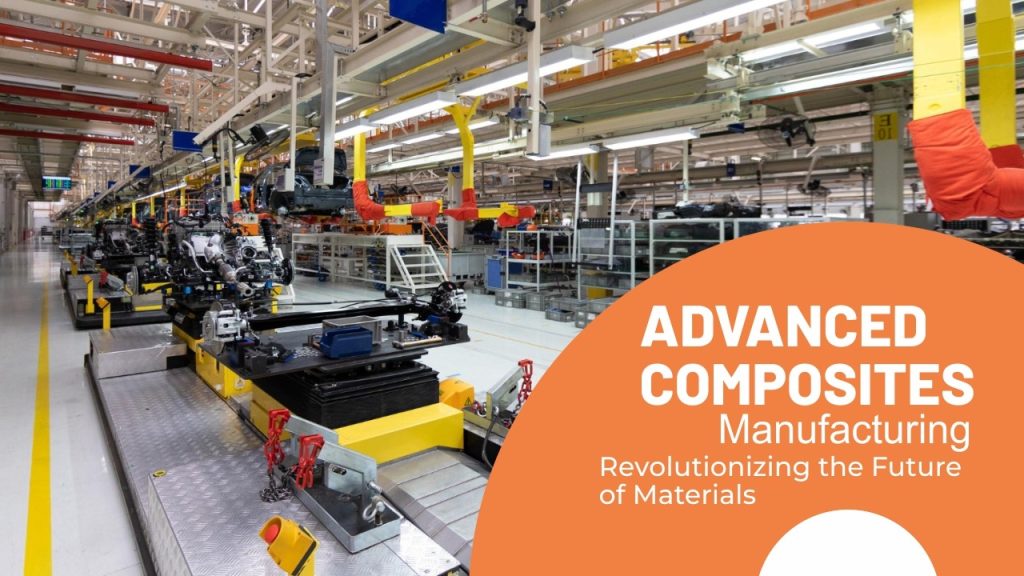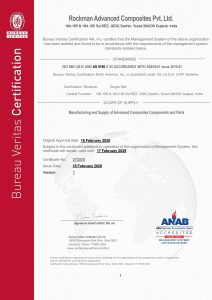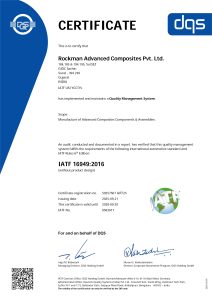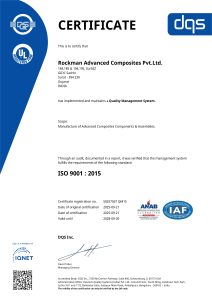The modern engineering field is recently unfurling several innovations and developments amongst which advanced composites have emerged as a premium component that is transforming engineering industries with high-performance products. This material has proved as a game-changer in diverse industries from automotive to aerospace, sports equipment to construction. Advanced composites are made from a combination of two or more constituent materials, and offer remarkable properties that can revolutionize the way automotive products are designed and manufactured. From reducing weight and increasing fuel efficiency to enhancing durability and improving safety, the promise of advanced composites in the automotive industry is truly remarkable.
About Advanced Composites
Advanced composites are manufactured from two or more constituent materials having different physical and chemical properties. The combination of these materials produces a composite having distinct characteristics from the individual materials. Generally, advanced composites comprise materials such as polymers, ceramics, and metals along with reinforcement materials like fibers or particles. The perfect combination of materials in composites results in enhanced properties such as durability, corrosion resistance, high strength-to-weight ratio, and enhanced thermal stability. Advanced composites due to these improved properties turn out to be a lucrative choice for high-performance applications.
Manufacturing Processes of Advanced Composites
The manufacturing of advanced composites involves several sophisticated processes designed to optimize the properties of the final product. Some of the key manufacturing techniques include:
Hand Lay-Up – It is the simplest and primary manufacturing technique in which dry material layers are laid down by hand onto a mould to build a laminate stack. This process is termed labour-intensive but still is used for manufacturing large and complex parts.
Automated Fiber Placement (AFP) – This is an advanced manufacturing process performed using robotic arms. The robotic arms place the fibers in precise patterns, allowing better control over the orientation of the fiber. This further improves the quality and consistency of the final product.
Resin Transfer Molding (RTM) – In this advanced composites manufacturing process, first the fibers are placed into a mould and then resin is injected under pressure. This process is termed fiber impregnation and results in high-quality composite parts with enhanced mechanical properties.
Injection Moulding – Injection moulding is arguably the most widely used net-shape manufacturing process for composite materials. In this process, the bulk moulding compound is heated and then injected into a heated mould. The material is held under pressure until the resin cures. This technique is primarily used for creating relatively small components.
Additive Manufacturing – Also known as 3D printing, additive manufacturing is gaining traction in the composites industry. This process involves layer-by-layer deposition of composite materials, allowing for the creation of complex geometries and customized parts.
Advancement in Advanced Composites Manufacturing
Recent advancements in advanced composites manufacturing are transforming industries with enhanced efficiency and performance. Following advancement and innovations in automated processes are experienced:
Use of Automated Process – The use of automated processes in manufacturing such as Automated Fiber Placement (AFP) and Automated Tape Laying (ATL) leads to the precise and rapid production of complex composite structures.
Durable and Improved Products – The integration of nanomaterials, including carbon nanotubes and graphene, has significantly improved the mechanical properties, thermal stability, and electrical conductivity of composites.
3D Printing – Additionally, the development of 3D printing technologies for composites allows for customized, lightweight, and high-strength components, revolutionizing design possibilities.
Environment-Friendly Manufacturing – Sustainable practices are also gaining traction, with bio-based resins and recyclable composites reducing environmental impact.
These advancements are not only pushing the boundaries of material capabilities but also making advanced composites more accessible and cost-effective for a wide range of applications, from aerospace and automotive to renewable energy and construction.
Advanced composites manufacturing is a dynamic and rapidly evolving field that holds immense potential for various industries. The unique properties of composites, combined with innovative manufacturing techniques, are driving the development of lighter, stronger, and more efficient materials. As technology continues to advance, the future of advanced composites looks promising, offering endless possibilities for creating high-performance products that meet the demands of the modern world.








